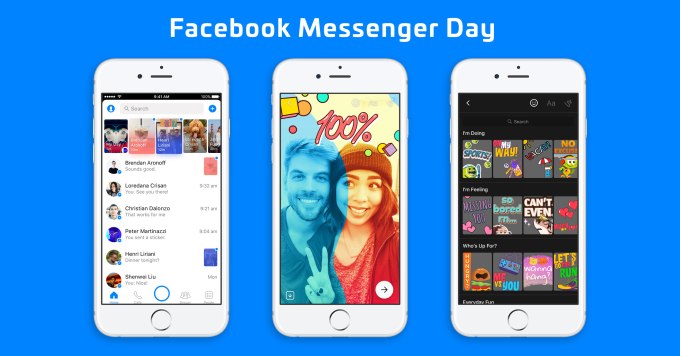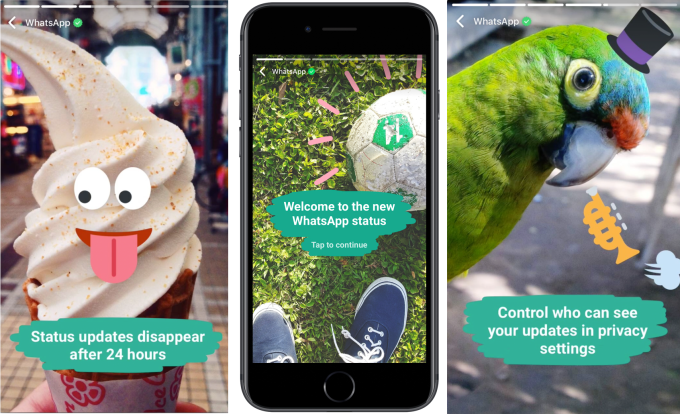Facebook’s attempts to clone Snapchat know no limit.
The social networking giant is in the enviable position of owning a number of the world’s most used internet services and applications. Facebook the social network is closing in on two billion registered users — a level of global reach that is unprecedented in history — while its Messenger app counts one billion active users.
The company has invested wisely, and two of its acquisitions are equally as popular and international. WhatsApp has more than a billion active users worldwide, predominantly in emerging markets, while Instagram reached 500 million users last summer and continues to grow fast across pretty much every part of the world bar China.
Facebook is a once in a generation beast because it has the kind of scale that no other company has, or is ever likely to reach in this generation, at least.
Through its growth it has laid out a tough standard for other social networks and services. The Facebook comparison has blighted Twitter and its failure to grow, for example, and it is weighing on the minds of investors in newly public firm Snap, too.
All the Snaps in all the chats
Yet despite these achievements, Mark Zuckerberg and his team seem determined to out-snap Snap, the company he once tried to buy for $3 billion, by cloning its disappearing photo feature, the core of its app, into every piece of digital real estate that Facebook owns.
That focus appears to be working for Instagram — which we reported is burrowing into Snap’s business in terms of both users and influencers — but Facebook’s relentless pursuit of all possible cloning opportunities has now officially gone too far. This week it launched Messenger Day for Facebook Messenger, having added a similar feature to WhatsApp last month.
Messenger and WhatsApp, arguably its two prized jewels in today’s mobile-first messenger-centric world, have been Snap-cloned — and the results appear far from impressive.
As someone living in a market where Facebook first tested Messenger Day — the Snapchat clone its executives refuse to acknowledge was copied from Snapchat — I can say that the new feature has only soured my use of Messenger.

Despite the fact that it sits atop the app with no option to hide or remove it, I’ve never seen more than three of my 600-plus Facebook friends from across Asia, Europe and the U.S. use it during a single day. Others I spoke to have seen a similar pattern of (lack of) usage.
What’s worse is that Facebook has inadvertently brought people into this Snaptastic new world of photo sharing without their full knowledge.
The constant prompts that pop up when you share an image inside a Messenger chat window have led to embarrassing accidental postings. One friend posted confirmation of a bank transfer, sent as confirmation to the receiver via Messenger, to “Messenger Day.” Because it wasn’t clear how to remove the image, he cringed all day as it sat there for all to see for 24 hours before finally disappearing.
The feature just launched in the U.S., but already the signs don’t seem too encouraging.
https://twitter.com/stevekovach/status/840043912072900608
Now that Facebook Messenger is trying to be Snapchat, I long for the days when it was trying to be WeChat.
— Andreas Ehn (@ehn) March 10, 2017
https://twitter.com/FightFoleyFight/status/840188359410667520
https://twitter.com/AodhanBenson/status/840188022519922689
My god this was a bad idea. I'm certain Stories in my banking app are next.
— M.G. Siegler (@mgsiegler) March 10, 2017
Beyond the Twitter crowd, young people — thought to be one of the the key targets of Facebook’s clone attempts — don’t seem to take the new Messenger Day feature very seriously.
“My school friends think Facebook Day is ridiculous, and so do I,” Tiffany Zhong, a 20-year-old student who formerly worked at VC firm Binary Capital, told TechCrunch.
“The sentiment around Facebook Day is clearly all negative unfortunately. But shoutout to Facebook for being relentless and shameless in replicating Snapchat!” she added.
Zhong said she posted one photo on the new service captioned ‘What is this nonsense’ and was surprised to see that all the responses she got from her friends were negative.
“Why is everything about creating stories now. i hate it lmao,” one told her.
That’s not exactly the response Facebook HQ was hoping for.
SnapsApp
It isn’t just Messenger — the WhatsApp experience has been an equal disappointment.
Few people I know on WhatsApp — many of whom are in India or other countries where it is the primary communications app — have used the new Snapchat Status feature.
From conversations, most are unclear as to why they’d want to post self-destructing photos in the first place, while other more tech-savvy friends, perhaps influenced by Western internet culture, would rather post to a place where family and friends aren’t going to be on the receiving end of their photos. On the whole, the answer to that latter part is Snapchat, not WhatsApp or Messenger.

Beyond an effort to appeal to younger people who are reportedly ditching its service for places where their parents are not, Facebook’s Rest of the World theory on Messenger and WhatsApp seems to center on the fact that Snap has failed to build a meaningful presence in emerging markets.
While it is true that Snap doesn’t have an emerging market focus — a source told TechCrunch there will be no Snapchat Lite because the company wants to reach a self-determined “quality” audience whether in the U.S., India or elsewhere — bolting these features into WhatsApp and Messenger is a hideous misunderstanding of dynamics of messaging which have Messenger and WhatsApp so popular.
What about those who have used it?
It was hard to track down a regular user, but Dan Clarke, CEO of SEO marketing agency Disruptient, is one. Despite living in Singapore, where WhatsApp is the dominant chat app, Clarke said his postings, which tended to be once a day, attracted just a handful of replies from friends on the service.
“Typically, I’ll see three or four responses to a photo from several hundred contacts I have stored within the app,” he said. “But many of those contacts are people I meet through work or don’t know too well, so they may not be likely to reply to something this personal.”
Clarke added that he was surprised that his photos are viewable by anyone whose phone number he had. In other words, a lot of people he might have forgotten about a long time ago. Clarke said he believes WhatsApp Status is still a novelty with some people, but he posts more content to Instagram Stories when given the choice between it, Snapchat and WhatsApp.
Messing with the appeal of chat
Beyond young users and millennials, most people appreciate that both apps are a step up from SMS while keeping the same simplicity. An easy way to reach and chat with anyone. With its focus on images, there’s logic to bringing the Snapchat features to Instagram, but with WhatsApp and Messenger the thesis runs counter to their values.
Facebook, to its credit, is focusing on other areas for its messaging apps. It is reportedly testing business services inside WhatsApp — which is already used unofficially for such purposes in places like India and the Middle East — while it recently altered its bot program to instead focus on app-like interfaces that have been hugely success for China’s WeChat, the bellwether for innovation in messaging.
It remains to be seen whether Facebook will face backlash for its Snap-cloning inside WhatsApp and Messenger, but it certainly seems like an unnecessary risk to entertain when there is so much at stake in the future of messaging. WeChat has moved on to testing mini apps, turning its chat app into a cross-platform operating system of sorts. The end goal of chat looks like bringing utility and convenience to the fore rather than cloning a competing product into the fabric of every app under the sun.































Comment